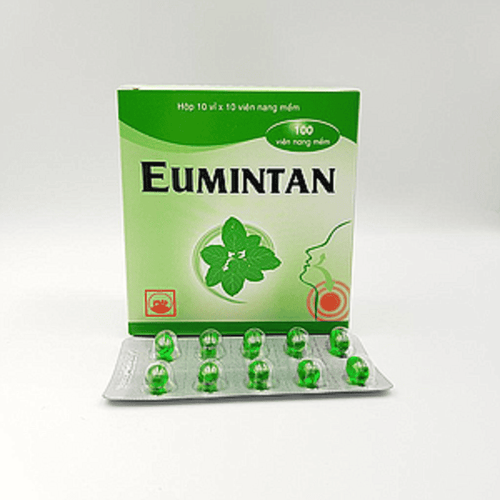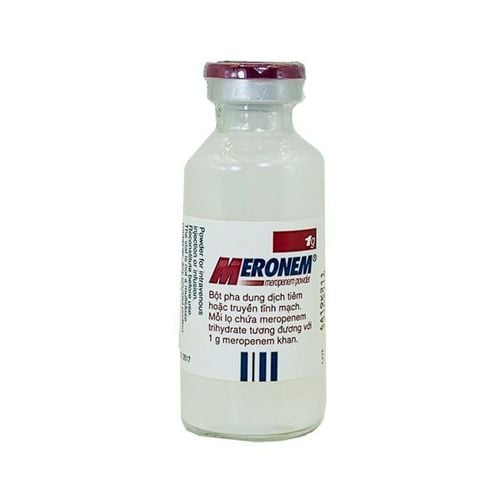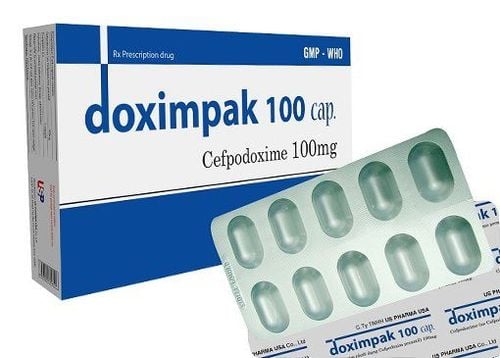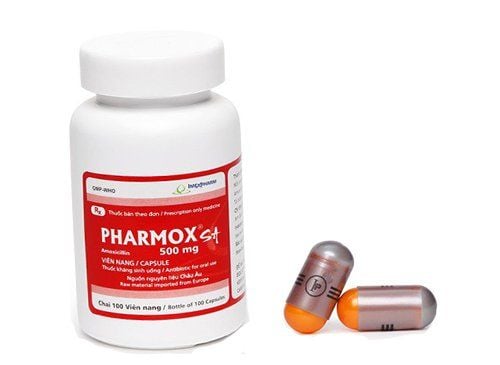This is an automatically translated article.
Locinvid 500mg is an antibiotic used in the treatment of infections caused by susceptible bacteria such as nosocomial pneumonia, skin and soft tissue infections, chronic bronchitis... Let's learn about Uses and notes when using Locinvid tablet 500mg through the article below.
1. Uses of the drug Locinvid
“What is Locinvid 500mg?”. Locinvid 500mg medicine contains the active ingredient Levofloxacin 500mg - an antibiotic of the Fluoroquinolone group. Levofloxacin acts by inhibiting Topoisomerase IV and DNA Gyrase - enzymes necessary for DNA replication, reproduction, repair and incorporation.
Locinvid 500mg is indicated in the following cases:
Nosocomial pneumonia; Complicated skin and soft tissue infections; Community-acquired pneumonia; Acute bacterial sinusitis; Bacterial prostatitis; Complicated urinary tract infections; Acute pyelonephritis.
2. Dosage of Locinvid
Dosage of Locinvid is prescribed by the doctor based on the specific condition of the patient. Some recommendations on the dose of Locivid 500mg in adults are as follows:
Nosocomial pneumonia use 750mg/day; Community-acquired pneumonia with a dose of 500-750mg/day; Acute bacterial sinusitis with a dose of 500-750mg/day; Complicated skin and soft tissue infections with a dose of 750mg/day; Chronic prostatitis: 500mg/day; Complicated urinary tract infections or acute pyelonephritis at a dose of 250-750mg/day; Uncomplicated urinary tract infections 250mg/day. The dose of Locinvid should be adjusted in patients with renal impairment based on creatinine clearance. Patients need to adhere to the dose and duration of medication. Do not exceed the duration of drug treatment or shorten the duration of medication when you feel your symptoms decrease, because the risk of drug resistance will increase.
3. Side effects of the drug Locinvid 500mg
Locinvid 500mg can cause some unwanted effects as follows:
Common: Nausea, diarrhea, upset stomach, dizziness, headache, trouble sleeping; Uncommon: Skin reactions such as sunburn, psychosis, tremor, mood changes such as confusion, stress, hallucinations, suicide...; Rare: Burning sensation, pain, numbness, tingling, weakness in any part of the body, emotional changes, easy bruising and bleeding, signs of new infections such as persistent sore throat and fever; changes in vision, changes in the amount of urine; Possible serious reactions include heart palpitations, chest pain, fainting, seizures, irregularities, signs of liver problems (stomach, nausea, vomiting, abdominal pain, yellowing eyes, dark urine); Long-term treatment with Locinvid can cause thrush, vaginal yeast infections; Locinvid rarely causes serious intestinal conditions such as pseudoconjunctivitis. This condition may occur during treatment or weeks to months after stopping drug treatment; Serious allergic reactions to the drug are very rare with symptoms including rash, swelling, itching (especially of the lips, tongue, and throat), severe dizziness, trouble breathing. Patients need to stop using Lovincid and notify their doctor in case of any unwanted effects when using it.
4. Notes when using Lovincid 500mg
4.1. Contraindications Contraindicated to use Lovincid 500mg in the following cases:
Patients with hypersensitivity to Levofloxacin or any component of the drug Lovincid 500mg; Epilepsy patients ; Patients with G6PD deficiency, history of tendon disease caused by fluoroquinolone antibiotics; Children under 18 years old. 4.2. Caution when using Levofolxacin in particular and fluoroquinolone antibiotics in general is associated with the risk of tendonitis and ligament rupture in all patients. This risk is increased in patients over 60 years of age, patients on corticosteroid therapy, kidney, lung or heart transplant recipients. Tendon rupture can occur during and after treatment with Lovincid 500mg. Therefore, patients should stop using the drug if symptoms such as swelling, inflammation, tendon pain appear.
Hypersensitivity reactions, sometimes fatal, have been reported in patients treated with fluoroquinolones, usually occurring after the first dose with symptoms including shock, hypotension, cardiovascular collapse, loss of consciousness, convulsions, angioedema (including face, eyes, larynx)...
Hepatotoxicity: There have been reports of the risk of acute hepatitis in treated patients. treated with Levofloxacin.
Central Nervous System Effects: Psychiatric disturbances and convulsions have been reported in patients treated with fluoroquinolone antibiotics, including levofloxacin. The drug can also increase intracranial pressure and stimulate the central nervous system causing symptoms such as restlessness, anxiety, insomnia, nightmares, depression, hallucinations, paranoia..
Diarrhea-related Clostridium difficile infections are commonly associated with the use of fluoroquinolone antibiotics with mild to severe, even fatal. The reason is that antibiotics upset the balance of the intestinal microflora leading to overgrowth of C. diffile.
Peripheral neuropathy: There have been reports of the risk of motor sensory axonal polyneuropathy, sensory disturbances, decreased sensation... when treated with Levofloxacin.
QT prolongation: The antibiotic Levofloxacin has been associated with electrocardiographic QT prolongation and infrequent cases of arrhythmias. Rare cases of torsades de pointes have been reported after taking Lovincid 500mg.
Disorders of blood sugar: Levofloxacin, like other fluoroquinolones, can cause disturbances in blood sugar, including symptoms of hyperglycemia or hypoglycemia, which have been reported with the drug. Patients experiencing this side effect should have their blood sugar monitored carefully.
For pregnant and lactating women: Lovincid 500mg is contraindicated in these subjects.
5. Lovincid 500mg . drug interactions
Antacids, metal cations, sucralfate, vitamin supplements: Concomitant use of Lovincid 500mg may reduce the absorption of the above drugs due to the risk of forming insoluble complexes.
Wafarin: The effect of Wafarin is increased when used concurrently with Lovincid 500mg, increasing the risk of bleeding. Therefore, patients should be carefully monitored prothrombin time, INR and anticoagulation tests in case the combination is mandatory.
Antidiabetic drugs: Blood sugar disturbances such as increased or decreased blood glucose levels have been reported in patients taking concomitant antidiabetic drugs and fluoroquinolone antibiotics.
Non-steroidal anti-inflammatory drugs: The CNS stimulant effect is increased when Lovincid 500mg and non-steroidal anti-inflammatory drugs are used concurrently.
Theophylline: The half-life of Theophyllin is increased when used with Levofloxacin, thereby increasing blood levels, increasing the risk of unwanted effects.
Cyclosporine: The serum concentration of Cyclosporine is increased with concomitant use of Levofloxacin.
Interactions with diagnostic tests: Lovincid may cause false positives for urine opiates in urinalysis with immunoassay kits available.
Drug interactions occur that increase the risk of having effects and reduce the therapeutic effects of Lovincid 500mg. Therefore, to ensure safety and effectiveness in treatment, patients need to inform their doctors about the drugs and foods they are using before taking Lovincid 500mg.
In summary, the drug Locinvid 500mg is effective in the treatment of hospital-acquired pneumonia, skin and soft tissue structural infections, chronic bronchitis... Before using, patients should carefully read the instructions and If you have any further questions, you can contact your doctor for advice.
Please dial HOTLINE for more information or register for an appointment HERE. Download MyVinmec app to make appointments faster and to manage your bookings easily.













